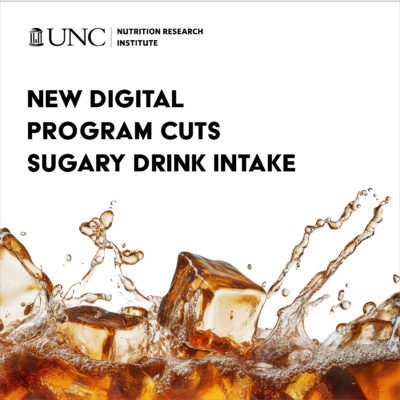Read the full original study as posted on the NIH website here.
How the iSIPsmarter Program Works
In parts of rural Appalachia, especially in southwest Virginia, adults are drinking much more sugar-sweetened beverages (SSBs) than the rest of the country. These drinks include soda, sweet tea, energy drinks, and fruit drinks. On average, adults in this region consume about 38 ounces of sugary drinks every day—nearly four times the recommended amount. This high intake is a major health concern, contributing to obesity, diabetes, heart disease, high blood pressure, and tooth decay.
Unfortunately, access to health care and programs that support healthier habits is limited in many of these rural areas. That’s why researchers created iSIPsmarter, a technology-based program designed specifically to help rural adults reduce sugary drink intake and improve their health.
iSIPsmarter is a fully online program based on a previous in-person version called SIPsmartER, which was proven effective in reducing sugary drink intake. iSIPsmarter was created to make the program more convenient and accessible, especially for people who live far from clinics or have transportation challenges. The program includes six weekly lessons—called “Cores”—delivered through a secure website. Each Core is interactive and includes videos, stories, quizzes, and goal-setting activities. Participants also receive text messages to help them track their drink intake and weight. Everyone who joins the study receives a cellular-connected bathroom scale they can use at home.
To get started, people complete a short online form to check if they qualify. They must be 18 or older, live in southwest Virginia or nearby counties, drink more than 200 sugary drink calories per day, and be able to access the internet at least once a week. Eligible participants then complete two telephone interviews where they describe what they ate and drank in the past 24 hours. They also fill out a short online survey. After the first phone interview, a scale is mailed to their home along with setup instructions. Once the baseline information is collected, participants are randomly placed into one of two groups: the iSIPsmarter group or the Participant Education (PE) group, which receives a more basic website with general health information.
All participants receive a secure login and begin their assigned program. For the iSIPsmarter group, a new Core becomes available each week. Participants can track their sugary drink intake by responding to daily text messages or logging into the website. Their weight is automatically recorded by the scale and synced with the website. If a participant misses a lesson, they’ll receive a friendly reminder by text and possibly a follow-up call from the research team offering support and troubleshooting tips.
After nine weeks, everyone completes another round of assessments, including a survey, weight check, and two more dietary interviews. The same assessments will be repeated at six and eighteen months to see how well participants maintain their progress over time.
Researchers are looking at how effective iSIPsmarter is at helping people drink fewer sugary beverages. They’re also tracking improvements in weight, diet quality, and overall quality of life. In addition, they’re studying how often people use the website, how many lessons they complete, and how satisfied they are with the experience. All of this helps researchers understand what works best, how people engage with the program, and whether it could be used more widely.
Cost is another factor being studied. Because iSIPsmarter includes personalized tracking and human support, researchers are carefully measuring the time and resources needed to deliver the program. They’ll use this data to determine if iSIPsmarter can be a sustainable, affordable option for health systems or community organizations in the future.
This study is especially important because there are very few programs like this available in rural regions. Most research on digital health tools has been done in urban or suburban areas. iSIPsmarter is helping to fill that gap and show how technology can support better health in places where it’s needed most.
The long-term goal is to create a scalable, effective program that can be used across rural America—and potentially beyond—to reduce sugary drink consumption and lower the risk of chronic diseases like obesity, diabetes, and heart disease. By offering an engaging, user-friendly experience online, iSIPsmarter brings practical health solutions directly into people’s homes, helping them make lasting changes one sip at a time.

